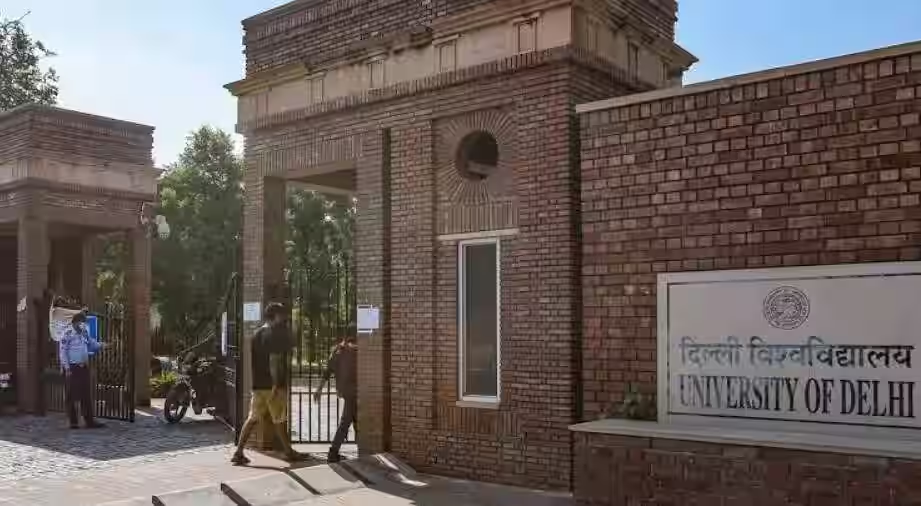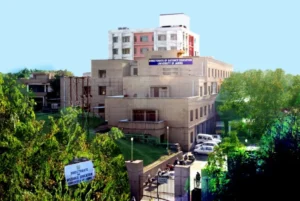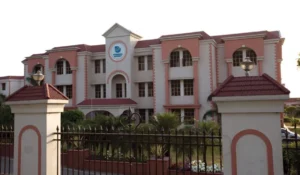
Do you wish to know more about the University of Delhi? Here is your chance. We encourage you to read through as we will show you every detail you need to know.

About the University of Delhi
The University of Delhi, often known as Delhi University or DU, is a public central university located in New Delhi, India.
The then-Central Legislative Assembly founded it as a unitary, teaching, and residential university in 1922, with three colleges and 750 students. Delhi University has developed to become one of India’s major institutions, with 16 faculties, more than 80 academic departments, 91 associated colleges, and over 7 lakh students.
The UGC recognizes DU as an “Institute of Excellence” and the NAAC awards an ‘A+’ rating. The President of India is the Visitor, the Vice-President is the Chancellor, and the Chief Justice of the Supreme Court of India is the University’s Pro-Chancellor.
Delhi University is well-known for its excellent academic standards, numerous educational programs, eminent teachers, prominent alumni, a wide range of extracurricular activities, and contemporary infrastructure.
It is placed 11 and 22 in the ‘University’ and ‘Overall’ categories of the NIRF Rankings 2023, respectively. Delhi University has two campuses in North and South Delhi, with plans to open two further campuses in the East and West.
DU offers more than 500 programs, 209 of which are being considered for NAAC certification. The university also provides distance learning programs through its School of Open Learning (DU SOL).
There is also a Non-Collegiate Women’s Education Board (NCWEB) for female students.
From 2022, Delhi University’s admission method will shift from the 12th percentage mark to CUET UG for undergraduate courses and DUET to CUET PG for graduate degrees.
Delhi University Courses and Fees
Delhi University provides a diverse range of undergraduate, postgraduate, and doctoral degrees in Arts, Science, Commerce, Management, Law, and Engineering, among others.
The most popular programs at Delhi University are BA (Hons), B.Com (Hons), and B.Sc (Hons).
The eligibility requirements, seat intake, and fees for DU’s popular courses are listed here.
|
Courses |
Eligibility Criteria | Seat Intake | Fees (1st Year) |
| BA (Hons.)/BA (Prog) | 10+2 in any discipline with at least 50% marks | 43,539 | INR 4,586 – INR 13,340 |
| B.Com (Hons.)/ B.Com | 10+2 in the commerce stream with at least 50% marks | 1,161 | INR 14,340 |
| B.Sc (Hons.)/B.Sc (Pass) | 10+2 in the Science stream with at least 50% marks | 19,398 | INR 8,385 – INR 30,000 |
| B.Tech | 10+2 in Physics, Chemistry, and Mathematics with at least 60% marks | 435 | INR 2,24,000 |
Details like eligibility criteria, and fees for other DU courses are given in the table below:
| Courses | Eligibility Criteria | Fees (1st Year Fees) |
| BBA | 10+2 with at least 50% marks | INR 26,485 |
| BA LLB (Hons)/ BBA LLB (Hons) | 10+2 or its equivalent with 45% or more marks in aggregate | INR 1,90,000 |
| M.Com | B.Com with at least 50% marks in aggregate or equivalent | INR 13,790 |
| MBA | Bachelor’s degree in any specialisation with a minimum of 50% marks in aggregate | INR 48,000 |
| MCA | BCA from a recognised university with a minimum of 50% marks in aggregate | INR 13,770 |
| MA | Bachelor’s degree with a minimum of 50% marks in aggregate from a recognised university | INR 13,750 – INR 19,030 |
| M.Sc | 50% aggregate marks in B.Sc in a relevant subject | INR 8,906 – INR 15,600 |
| B.Ed | Bachelor’s degree with a minimum of 50% marks in aggregate from a recognised university | INR 6,910 |
| PhD | Master’s degree/ M.Phil degree in a relevant discipline with minimum 55% marks | INR 4,450 |
Foreign national students will be given 10% of the supernumerary seats in each program.
There is no minimum age requirement for admission to UG and PG programs unless the respective regulatory bodies, such as the Medical Council of India (MCI), All India Council for Technical Education (AICTE), Bar Council of India (BCI), National Council for Teacher Education (NCTE), Dental Council of India (DCI), etc., have specified it in their regulations.
Candidates with a gap year are also able to apply for admission to DU’s undergraduate and graduate programs.
- 15% of seats are designated for Scheduled Caste candidates.
- 7.5% of seats are reserved for candidates from Scheduled Tribes.
- 27% of seats are designated for candidates from Other Backward Classes (OBC-Non-Creamy Layer, Central List).
The University Departments / Centres / Colleges have set aside 10% of seats in each program for Economically Weaker Sections (EWSs).
Seats are also reserved for individuals with Sports Quotas and Benchmark Disabilities (PwBD).
READ ALSO!!!
- University of Padua
- Monash University
- Vancouver Island University
- Crawford University
- University of Luxembourg
Delhi University Admission
Delhi University admits students to undergraduate and graduate programs based on their entrance examination scores.
The DU admissions process consists of taking the entrance test, registering for seat allocation on the admissions site, and going through the seat allotment process. DU admission is done by a multi-step procedure, which is as follows:
Step 1: Register for the Entrance Examination
Admission to all courses at Delhi University’s affiliated institutions, faculties, and departments is dependent on entrance examination scores. To apply for admission to Delhi University, students must register for the following entrance tests.
| Delhi University Courses | Entrance Exam |
| Undergraduate | CUET UG |
| Postgraduate/PG Diploma | CUET PG |
| B.Tech | JEE Main (Paper-1) |
| BA LLB (Hons)/ BBA LLB (Hons) | Common Law Admission Test (CLAT) |
| MBA | CAT |
Candidates registering for CUET UG must pick Delhi University when filling out the application form, as well as the courses in which they are currently enrolled or have completed Class 12th.
If the subject studied in Class 12th is not mentioned in the CUET UG application form, the candidate must appear in the Language/Domain Specific subject that is similar/closely related to the subject studied in Class 12th.
For example, if you studied Biochemistry in Class 12th, you must appear in Biology in the CUET UG.
Admission to PG courses at NCWEB is similarly dependent on CUET PG results, but UG admissions are based on 12th-grade grades.
Admissions to the School of Open Learning (DU SOL) are based on performance in the qualifying exams.
Step 2: Appear for the Entrance Exam
Candidates who complete the application form must attend the entrance examination as scheduled. The following timeline shows when entrance tests are typically held each year:
| Entrance Exam | Timeline |
| JEE Main (Paper-1) | Session 1: January/February Session 2: April |
| CUET PG | March |
| CUET UG | May |
| CAT | November |
| CLAT | December |
Step 3: Register on the DU CSAS Portal and fill out the courses and college preferences
Candidates who pass the entrance examination must register on Delhi University’s Common Seat Allocation System (CSAS) Portal for seat allocation.
Once registered, applicants will be prompted to select their college and course options. The registration portals for admission to various degrees at Delhi University, as well as the registration cost, are listed below:
|
Courses |
Registration Portal | UR/OBC-NCL/EWS | SC/ST/PwBD |
| UG Application Fee (per program) | ugadmission.uod.ac.in | INR 250 | INR 100 |
| PG Application Fee (per program) | pgadmission.uod.ac.in | INR 250 | INR 100 |
| BTech | engineering.uod.ac.in | INR 1500 | INR 1200 |
| BA LLB (Hons)/ BBA LLB (Hons) | law.uod.ac.in | INR 1500 | INR 1000 |
NOTE:
- Candidates applying for BFA will be charged an extra cost of INR 400 (non-refundable).
- Candidates applying for performance/audition/practical-based programs, such as B.P.Ed, M.P.Ed, M.A.
- Music, and M.F.A., will be required to pay an extra fee of INR 400.00 per program.
- An extra fee of INR 100 is charged for each ECA and Sports supernumerary quota application.
Step 4: Seat Allocation
Seat allocation for all courses will be done in several rounds. Delhi University will publish merit lists in two categories:
Common Merit List and Category 2 Merit List (only for PG courses). All applicants will be considered for the Common Merit List (CML).
However, only students who have graduated from Delhi University will be considered for admission to postgraduate programs based on their performance in the qualifying test.
The highest possible preference will be tentatively assigned to a candidate based on the following criteria:
- A merit list based on a particular program.
- Social category (UR/OBC-NCL/SC/ST/EWS).
- Availability of seats
Step 5: Blocking of Seats and Final Admission
Candidates can verify the merit list by logging into their CSAS dashboard and accepting the assigned seat if offered.
Once a seat has been allotted in a certain round, the candidate must ‘Accept’ the allotted Seat before the deadline/time provided for that allocation round.
The provision for accepting a specific Allocated Seat is only effective for the round in which the seat was assigned to the contender.
In the event of multiple seat allotments in a given round, applicants will be able to “Accept” and take admission in ONLY ONE assigned seat.
Once the candidate clicks “Accept” on the temporarily allocated seat, the responsible Department/ Centre/College will authorize the seat allotment after reviewing the candidate’s qualifications and papers.
To confirm admission, applicants must pay the admission fee when the seat assignment is approved by the relevant Department/ Centre/College.
Read Also!!
- University of Kerala
- University of Calcutta
- Shivaji University
- Chitkara University
- Cotton University
University Delhi Cutoff
The Delhi University cutoff for admission to UG and PG programs (excluding BTech, Integrated 5-year LLB, and MBA) at affiliated colleges is based on CUET test results. DU College and course-specific cutoffs are shown here.
University Delhi CUET UG Cutoff
The table below shows expected CUET UG scores based on last year’s General category cutoff scores for admission to DU’s flagship BA (Hons), B.Sc (Hons), and B.Com programs at the top 15 colleges.
DU Colleges |
CUET UG Cutoff Score (General Category) | ||
| BA/BA (Hons) | B.Sc/B.Sc (Hons) | B.Com/B.Com (Hons) | |
| Miranda House | 770 | 770 | NA |
| Hindu College | 762 | 755 | 762 |
| Atma Ram Sanatan Dharm College | 732-736 | 732-755 | 770 |
| Kirori Mal College | 755-767 | 755-770 | 770 |
| Lady Shri Ram College For Women | 708-713 | 770 | 770 |
| Shri Ram College of Commerce | 770 | NA | 770 |
| Hans Raj College | 755-758 | 755 | 770 |
| Sri Venkateswara College | 508-747 | 716-747 | 747 |
| St. Stephens’s College | 755 | 755 | NA |
| Deshbandhu College | 631-636 | 601-616 | 770 |
| Kamala Nehru College | 539-753 | NA | 724-739 |
| Daulat Ram College | 766-771 | 693-770 | 739-755 |
| Gargi College | 758-763 | 770 | 624 |
| Maitreyi College | 716-721 | 708-747 | 755 |
| Dyal Singh College | 539-755 | 724-755 | 747-755 |
- In 2023, the CUET UG cutoff score for admission to BA (Hons), B.Sc (Hons), and B.Com (Hons) programs fell compared to 2022, when the cutoff score for these courses reached 800 for top colleges such as Miranda House, Hindu College, and others.
- Candidates seeking admission to flagship courses such as BA English (Hons), BA Economic (Hons), and BA (Political Science) must score at least 750 out of 800 to be admitted to one of DU’s top colleges.
- According to previous year’s cutoff trends, DU campus-wise CUET UG results are as follows:
-
- North Campus: 760+
- South Campus: 649+
- Off-Campus: 640+
- DU North Campus colleges, including Miranda House, Hindu College, Kirori Mal College, and Shri Ram College of Commerce, have consistently high cutoff scores, suggesting considerable admission demand.
For more information, you can check more of our articles or leave a comment in the comment section below and we will get back to you as soon as possible.





